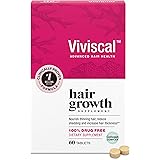Understanding Metabolism
Metabolism is a crucial set of biochemical processes that occur within the body, responsible for converting food into energy. This complex system not only fuels our everyday activities but also maintains various bodily functions, including growth, reproduction, and repair. Essentially, metabolism can be divided into two components: catabolism, which involves breaking down nutrients to produce energy, and anabolism, the process through which the body uses energy to build and repair tissues.
One of the key indicators of metabolic activity is the Basal Metabolic Rate (BMR), which represents the number of calories the body requires to maintain basic physiological functions at rest, such as breathing, circulation, and cell production. BMR accounts for roughly 60-75% of daily calorie expenditure and is influenced by several factors, including age, gender, body composition, and genetic predisposition. Understanding BMR is vital for anyone looking to assess their caloric needs and how much energy is utilized in various states of activity.
Another significant aspect of metabolism is thermogenesis, which refers to the production of heat in the body, particularly during digestion and physical activity. There are two primary forms of thermogenesis: obligatory thermogenesis, which occurs as a direct result of metabolic processes, and facultative thermogenesis, triggered by environmental factors such as cold temperatures. The interplay of these metabolic mechanisms forms the foundation of how effectively the body burns calories. By understanding these key concepts, individuals can better grasp how different factors influence metabolic rate and explore methods to enhance their metabolism for improved health and weight management.
Factors Affecting Metabolism
Metabolism is a complex biochemical process that governs the body’s energy production and expenditure. Several key factors can significantly influence an individual’s metabolic rate, and understanding these can be vital for anyone looking to enhance their metabolic efficiency.
Genetics plays a crucial role in determining metabolic rates. Some individuals are genetically predisposed to a faster metabolism due to inherited traits from their parents. These genetic factors can affect everything from muscle composition to hormonal regulation, thereby influencing overall energy expenditure.
Age is another significant factor impacting metabolism. Typically, metabolic rates decline with age, primarily due to the natural loss of muscle mass and changes in hormonal levels. This reduction in muscle tissue, which is more metabolically active than fat, can slow down the rate at which calories are burned, making it essential for aging individuals to focus on maintaining muscle through resistance training and adequate protein intake.
Muscle mass itself is a critical component of metabolic function. Higher muscle mass correlates with an elevated metabolic rate, as muscles require more energy to maintain than fat. Thus, individuals with a higher percentage of lean body mass tend to burn more calories at rest, enhancing their ability to manage weight effectively.
Hormonal balance also influences metabolism. Hormones such as thyroid hormones, insulin, and cortisol play significant roles in regulating metabolic processes. An imbalance in these hormones can lead to issues like weight gain or difficulty losing weight, underscoring the importance of maintaining hormonal health through lifestyle choices, including diet and stress management.
Lastly, lifestyle factors, including diet and physical activity, are paramount in determining metabolic rates. Consuming a diet rich in whole foods, adequate protein, and healthy fats can promote a more efficient metabolism. Regular physical activity, particularly strength training and cardiovascular exercises, can help boost metabolism by increasing muscle mass and enhancing overall energy expenditure.
The Role of Diet in Metabolism
The relationship between diet and metabolism is complex yet vital for understanding how the body manages energy and burns calories. Macros, short for macronutrients, comprise the primary components of our diets: proteins, fats, and carbohydrates. Each macronutrient plays a distinct role in influencing metabolic rates, thus impacting overall caloric expenditure.
Proteins are particularly significant when it comes to boosting metabolism. They possess a high thermic effect, meaning that the body expends more energy digesting protein compared to fats and carbohydrates. Incorporating lean protein sources such as poultry, fish, legumes, and dairy can enhance muscle repair and growth, which further aids in metabolic efficiency. Additionally, a higher muscle mass increases the resting metabolic rate, encouraging the body to burn calories even while at rest.
Fats, often misunderstood, also contribute to metabolic health. Healthy fats found in avocados, nuts, and olive oil are crucial for hormone production and can aid in the absorption of fat-soluble vitamins. Including these fats in moderation can support a balanced diet while ensuring adequate energy levels.
Carbohydrates, being the body’s primary source of quick energy, should not be excluded. Whole grains, fruits, and vegetables provide essential nutrients and fiber, which can encourage satiety and digestive health. They can help regulate blood sugar levels, preventing energy dips that may lead to increased calorie consumption.
To elevate metabolic rates through diet, consider incorporating specific metabolism-boosting foods into daily meals. Spices like cayenne pepper and ginger are known to have thermogenic properties, while green tea and coffee can enhance the metabolic process due to their caffeine content. Structure meals to include a balance of macronutrients while focusing on whole, minimally processed foods to optimize metabolism effectively.
Incorporating Exercise to Boost Metabolism
Engaging in regular physical activity is a fundamental strategy for enhancing one’s metabolic rate. Exercise stimulates various physiological processes that lead to increased calorie expenditure, even when the body is at rest. Among the multitude of exercise forms, high-intensity interval training (HIIT) and strength training have emerged as particularly effective in elevating metabolic rates. These types of workouts challenge the body, leading to greater afterburn effects and muscle growth, which are crucial for boosting metabolism.
HIIT consists of short bursts of intense activity followed by recovery periods. This training method not only improves cardiovascular fitness but also promotes a metabolic response known as excess post-exercise oxygen consumption (EPOC). Following HIIT, the body continues to burn calories as it recovers, effectively extending the calorie-burning effect beyond the workout session. Incorporating sessions of HIIT into a weekly fitness regimen can significantly enhance metabolic function.
On the other hand, strength training focuses on building muscle mass, which is vital for a sustained increase in metabolic rate. As muscle tissue is more metabolically active compared to fat tissue, increasing muscle mass leads to higher calorie expenditure throughout the day. It is recommended to engage in strength training exercises at least two to three times a week, targeting major muscle groups each session to maximize metabolic benefits. This can include activities such as weightlifting, bodyweight exercises, or resistance training.
To effectively integrate these forms of exercise into a weekly routine, individuals should aim for a balanced approach. A sample week may consist of three days of strength training, supplemented by two days of HIIT, along with active rest days filled with moderate activities such as walking or yoga. Tailoring an exercise plan to include both HIIT and strength training can optimize metabolic rates, leading to improved weight management and overall health.
The Impact of Sleep on Metabolism
The relationship between sleep and metabolism is a vital area of study, revealing that quality rest is essential for maintaining an optimal metabolic rate. Sleep deprivation can lead to hormonal imbalances, particularly in hormones like leptin and ghrelin, which regulate appetite and energy expenditure. Insufficient sleep has been linked to increased levels of cortisol, a stress hormone that can promote fat storage and hinder muscle recovery, both of which are critical for a healthy metabolic rate.
<p 2="" a="" also="" and="" at="" becomes="" body="" can="" compared="" complicating="" converting="" crucial="" developing="" diabetes.
To improve sleep quality and, consequently, metabolic health, several strategies can be adopted. Establishing a consistent sleep schedule helps regulate the body’s internal clock, promoting more restful sleep. Creating a conducive sleep environment by minimizing light, noise, and uncomfortable temperatures can significantly enhance sleep quality. Additionally, limiting caffeine intake and reducing screen time, particularly before bedtime, can also facilitate better sleep. Engaging in relaxing activities in the evening, such as reading or gentle stretching, can prepare the body for sleep.
Furthermore, regular physical activity can improve sleep patterns and support metabolic processes; however, it’s advisable to avoid vigorous exercise too close to bedtime. Thus, prioritizing sleep is a crucial component of managing metabolism effectively, allowing the body to function optimally in burning calories and regulating energy balance.
Hydration and Its Influence on Metabolism
Hydration plays a crucial role in metabolic processes, significantly influencing how efficiently the body burns calories. Water is essential for various biochemical reactions, including those responsible for energy production and nutrient utilization. When the body is adequately hydrated, metabolic functions operate at an optimal level, enhancing the overall efficacy of calorie burning.
Research indicates that drinking water can temporarily increase the metabolic rate, a phenomenon known as water-induced thermogenesis. Studies have shown that consuming approximately 500 milliliters of water may boost metabolic rate by around 30% for about 30-40 minutes. This effect is particularly pronounced in individuals who are already adequately hydrated, suggesting that even slight dehydration can hinder metabolic efficiency. Furthermore, staying well-hydrated aids in the breakdown of dietary fats and carbohydrates, contributing to improved energy availability for physical activities.
Inadequate hydration can lead to a decrease in metabolic rate, which may hinder one’s weight management efforts. Many people often confuse thirst with hunger, leading to unnecessary calorie consumption when simply drinking water could suffice. Thus, recognizing the signs of dehydration and acting promptly can be instrumental in regulating metabolism and supporting weight loss goals.
To maintain optimal hydration and, consequently, an efficient metabolic rate, it is advisable to drink water regularly throughout the day rather than waiting to feel thirsty. Carrying a reusable water bottle and setting reminders can help establish a consistent routine. It is also beneficial to consume water-rich foods such as fruits and vegetables, which not only contribute to hydration but also provide essential nutrients for overall well-being. By prioritizing hydration, individuals can significantly enhance their metabolic processes and promote healthy weight management.
Natural Supplements to Boost Metabolism
In the pursuit of enhancing metabolic function, many individuals turn to natural supplements as a means to potentially accelerate calorie burning and increase energy expenditure. Among the most popular options is green tea extract, which contains catechins and caffeine. Research has indicated that catechins can help boost metabolism while promoting fat oxidation. This dual effect makes green tea extract a favored choice for those looking to enhance metabolic rates in a natural manner. However, it is important to note that individuals sensitive to caffeine should approach this supplement with caution.
Caffeine itself is another well-known supplement that can significantly impact metabolism. As a stimulant, caffeine has been shown to not only improve physical performance but also increase the number of calories burned. Numerous studies suggest that caffeine can temporarily boost metabolic rate by 3-11%, making it an attractive option for those seeking to enhance their metabolism. Nonetheless, excessive consumption can lead to jitteriness, sleep disturbances, and increased heart rate, warranting moderation in its use.
Vitamins and minerals, including vitamin D, B vitamins, and magnesium, also play critical roles in metabolic processes. Vitamin D, in particular, has been linked to inflammation reduction and muscle function, both of which can influence metabolic health. Meanwhile, B vitamins are essential for energy metabolism, facilitating the conversion of food into usable energy. Magnesium is crucial for over 300 biochemical reactions, including those involved in energy production. Readers should ensure they are meeting their nutritional needs and consider supplementation if necessary, especially for those with deficiencies.
When exploring these natural supplements, individuals should consult healthcare professionals to assess personal needs and circumstances. This advice is crucial for identifying safe and effective usage, thereby maximizing the benefits while minimizing potential risks associated with supplementation.
Lifestyle Changes for a Faster Metabolism
Enhancing metabolism is achievable through various lifestyle modifications that focus on nutrition, physical activity, stress management, and daily habits. Implementing these actionable changes can significantly boost metabolic function and promote efficient calorie burning around the clock.
Firstly, dietary adjustments play a crucial role in metabolism. Consuming a well-balanced diet rich in proteins, healthy fats, and complex carbohydrates is essential. Proteins, in particular, require more energy to digest compared to fats and carbohydrates, leading to an increase in metabolic rate. Foods such as lean meats, legumes, nuts, and dairy products serve as excellent protein sources that can positively influence metabolic rates.
In conjunction with dietary choices, maintaining adequate hydration is vital. Water is a key component in various metabolic processes, and studies have shown that drinking cold water can temporarily boost the metabolism as the body expends energy to heat it to body temperature. Aim for at least eight glasses of water per day to support metabolic health.
Exercise also plays a pivotal role in boosting metabolism. Incorporating both aerobic and strength training exercises into your routine can help. Aerobic exercises, such as running or cycling, increase heart rate and calorie burn, while strength training builds muscle, which in turn elevates resting metabolic rate. Interval training, characterized by short, intense bursts of activity followed by rest, can maximize calorie burning even after the workout.
Another important aspect to consider is stress management. Chronic stress can lead to hormonal imbalances that negatively affect metabolism. Engaging in relaxation techniques such as yoga, meditation, or simple breathing exercises can help alleviate stress levels and promote a healthier metabolic rate.
Social habits also influence metabolism. Surrounding oneself with supportive friends and family members can foster healthier lifestyle choices, encouraging physical activity and balanced dietary habits. Sharing meals and engaging in physical activities together can create a positive environment that supports metabolic enhancement.
Conclusion and Call to Action
In conclusion, enhancing your metabolism is a multifaceted endeavor that benefits from a combination of mindful practices, lifestyle adjustments, and nutritional choices. As discussed, incorporating activities that promote muscle growth, such as strength training, can significantly elevate your resting metabolic rate. Additionally, staying active throughout the day, whether through high-intensity interval training (HIIT) or simply taking the stairs instead of the elevator, contributes positively to calorie burn.
Nutrition also plays a crucial role in metabolic health. Consuming a balanced diet rich in protein can aid in building muscle and thus fosters a higher metabolic rate. Moreover, integrating whole foods and maintaining adequate hydration levels are essential components for a well-functioning metabolism. Furthermore, adapting consistent sleeping patterns helps regulate hormonal balance, reducing fatigue and enhancing metabolic efficiency.
Readers are encouraged to evaluate their current routines and recognize the potential areas for improvement. Start with small, manageable changes—such as incorporating more whole foods into your meals or finding creative ways to stay active during the day. Tracking your progress through a journal or a digital app may provide motivation and insight into how these adjustments impact your overall health.
As you embark on this journey towards a higher metabolism, remember that patience and perseverance are vital. Each step taken towards revitalizing your metabolic health is a step towards achieving greater energy levels and improved overall wellness. Take action today, implement the strategies shared, and transform your daily habits into a foundation for metabolic success.







http://Jeffreywhaps
Работаем по ВЭД не первый год, и сопровождение стало неотъемлемой частью процесса https://vsoprovozhdenie.ru/
http://Jeffreywhaps
Благодаря сопровождению ВЭД мы не переживаем за логистику и оформление груза: https://vsoprovozhdenie1.ru/